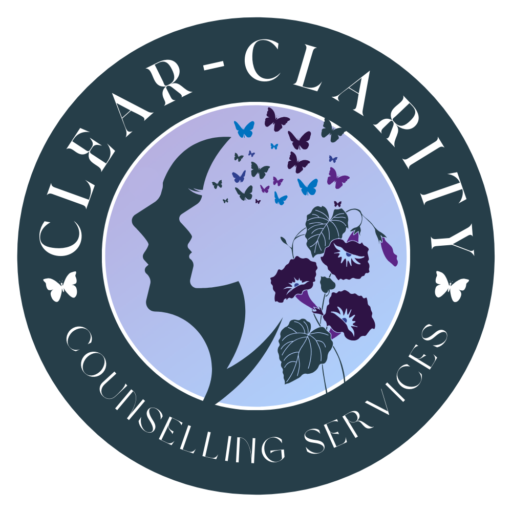Online support from Clear-Clarity Counselling Services in Gillingham Kent
How counselling help people recover from trauma
Trauma affects many people and can be related to one incident or a multiple of incidents.
Traumatic events can lead to conditions such as Post Traumatic Stress Disorder (PSTD).
There are varying types of traumas and the effect of this on someone’s mental health can be truly devastating. Below is a list of some of the types of traumas that may be experienced.
Types of trauma
Acute trauma which arises from a single unexpected event, this could be an accident,
abuse or even a natural disaster.
Vicarious trauma, this type of trauma happens when we speak with someone
experiencing trauma and we absorb some of the aspects of their events, a common
trauma in the helping profession.
Complex trauma involves more than one traumatic experience. It combines other
forms of trauma and can have a lasting effect on our mental health, causing
depression, hopelessness and low self-worth. Complex trauma can also lead to
Complex PTSD.
Sexual trauma combines sexual abuse and assault, this can have a profound impact
our emotional and psychological well-being.
Whatever type of trauma you have experienced, it can have a very deep effect on our
emotional well-being and talking it through with a counsellor/therapist can help with our
healing.
The short and long-term effects of trauma
The effects of trauma can be devastating and can include:
- Emotional responses like shock, denial, feeling overwhelmed, and helpless.
- Unpredictable, dysregulated emotions and upsetting flashbacks.
- Strained relationships with people closest to you.
- Physical symptoms like gastric issues, nightmares, heart palpitations and anxiety.
- Long-term impact on well-being, including mental health conditions, substance
use, and risky behaviours.
Counselling plays a vital role in recovery
Here’s how counselling can help people recover from trauma:
- Safe Space: Counselling provides a safe and supportive environment where individuals
can process their experiences and express their emotions. A counsellor will not push you to talk until you feel ready to do so. They should understand it takes time to build trust. - Coping Strategies: Counsellors will help you develop healthy coping strategies to
manage trauma-related symptoms. They can help aid you in breaking unhealthy coping strategies. - Emotional Support: Counsellors offer emotional support, helping individuals regain
their mental and emotional balance. They will listen to your story with empathy,
understanding and unconditional positive regard (UPR). - Understanding Trauma: Counselling helps people understand their reactions to
trauma, which can vary widely among people exposed to similar events. No two people
are the same and we all process traumatic events differently. - PTSD can be incredibly complex, seeking a counsellor can help us with symptoms like flashbacks and nightmares.
If you feel that some of these symptoms may be part of your experience, please reach out any time, Linda.

About the Author
My name is Linda Thompson, I am a qualified and insured counsellor working in Gillingham and Medway, Kent. I support individuals and couples with all kinds of issues, from bereavement to anxiety, relationship difficulties, trauma, abuse and coping with the general stressors of life. Please get in touch to book a session with me. Join me on Facebook.

